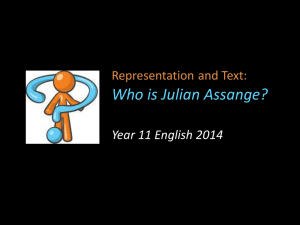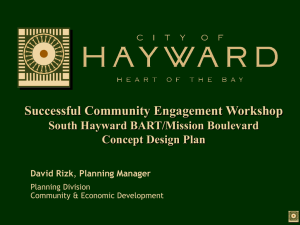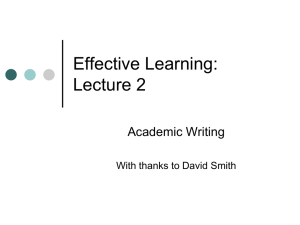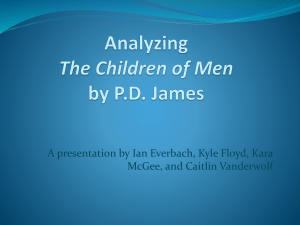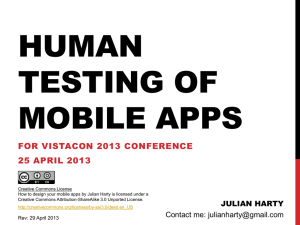trevordeloresdawn - University of Calgary
advertisement
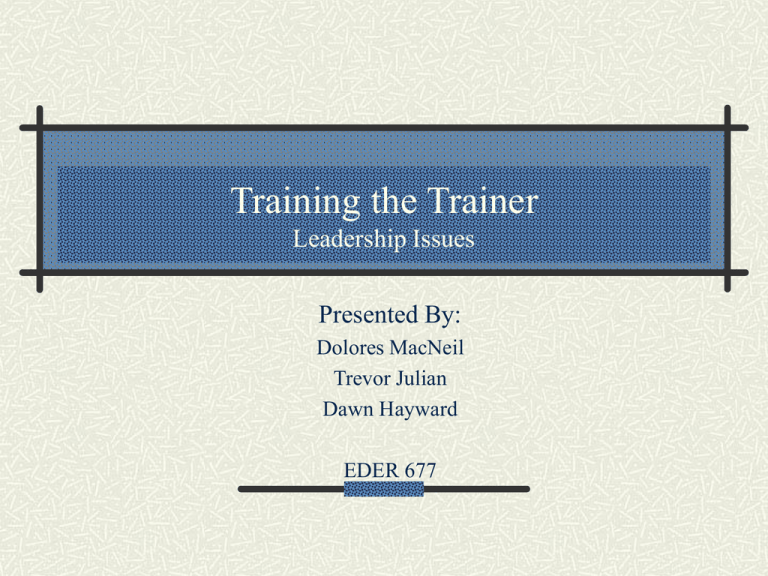
Training the Trainer Leadership Issues Presented By: Dolores MacNeil Trevor Julian Dawn Hayward EDER 677 Training the Trainer D. MacNeil, T. Julian, D. Hayward 2 Training the Trainer Presentation Sources Littman, Margaret. (2002) Teaching the Teacher. University Business Vol.5, Issue 7. Beaudoin, M. (2002). Distance education leadership: an essential role for the new century. Journal of Leadership Studies, 8(3),131-144. Retrieved October 09,2002, from the Gale database. Palloff, M., Pratt, K. (2001). Lessons from the Cyberspace Classroom; the realities of online teaching. San Francisco,CA. Jossey-Bass. Pielstick,C. (1998). The Transforming Leader: A Meta-Ethnographic Analysis. Community College Review, 26(3), 15-34. Retrieved October 21,2002, from the WilsonWeb database. D. MacNeil, T. Julian, D. Hayward 3 “The very essence of Leadership is that you have to have a vision”. Theodore Hesburgh There seems to be little attention given to Leadership in Distance education--- WHY? D. MacNeil, T. Julian, D. Hayward 4 Possible Suggestions … Perhaps because : 1) Up until now the energy in Distance Ed has gone into analyzing how it compares with the traditional classroom learning. 2) Up until now the attention has been on the planning and administering of Distance Ed courses. 3) Many have dismissed the concept of leadership as being useful for the advancement of Distance Ed. But Now, because Distance Ed has gained credibility and acceptance, it is no longer seen as a “maverick on the fringe” and it can now give attention to the role of Leadership for its future growth and development D. MacNeil, T. Julian, D. Hayward 5 Leadership in Distance Ed has been defined as a set of attributes that create a condition for innovative change : Creating a shared vision Communicating the vision Building relationships Guiding implementation Exhibiting character Achieving results Developing a supporting organizational culture D. MacNeil, T. Julian, D. Hayward 6 Questions such as … How many future faculty are needed? Is the present structure of institutions appropriate? Will students and teachers need to meet face-to-face?—need to be addressed by the future Leaders D. MacNeil, T. Julian, D. Hayward 7 From Micro to Macro … Now, as competition-costtechnology come together there is a need to move away from the “natural conservatism” ( Palloff and Pratt,2001,p.39) of educators to a role of decision-making; away from a micro view of technology towards a macro view of the impact of technology. D. MacNeil, T. Julian, D. Hayward What’s Next? 8 Distance Education Leaders Persons prepared as Leaders in Distance Ed. will, for the first time, be Leaders who have not “come up through the ranks”; It will be possible to play a Leadership role without being an expert in the field. D. MacNeil, T. Julian, D. Hayward 9 Teaching Teachers University of Arizona Study by Mark Zupan Can universities meet graduate students’ demand for online classes? Is there a problem in training teachers to become effective online instructors? Does a good classroom lecturer make a good online teacher? D. MacNeil, T. Julian, D. Hayward 10 Distance Education Instructors Problems with untrained online instructors … lacked technical basics need handholding in learning need too much tech support lack the ability to develop a sense of community had difficulty in planning courses that could run smoothly D. MacNeil, T. Julian, D. Hayward 11 What should we do? We need to realize that teaching online courses requires a special skill set Knowing what content is most effective online is important Assist experienced teachers who resist the idea that they need to learn new teaching skills Implement formal training for online instructors D. MacNeil, T. Julian, D. Hayward 12 What’s happening? Instructors must be available to respond to student questions and problems. Clearly the standards for interaction are different for classroom based learning and online learning. It is difficult to get instructors to view technology as a pedagogical tool, not just as a communication tool. D. MacNeil, T. Julian, D. Hayward 13 What are Universities doing? Eller College of Business at Arizona has initial teacher training and also require ongoing training for instructors to improve their skills. University of Phoenix, believes that student evaluations are the best judge of distance ed success. Many teachers who don't stay with UOP because of the time required for giving students feedback and many are weeded out largely due to negative student evaluations. Others are unable to conform to UOP online policies and practices. Mentoring of new faculty is an important process at UOP. D. MacNeil, T. Julian, D. Hayward 14 Break Out Groups For five minutes, please discuss one of the following and be prepared to present to the large group: 1. What training have your received that would be the most beneficial to you in instructing online learning? 2. If you were approached by your principal to develop and implement an online course would you feel prepared? Why or why not. 3. A colleague who is about to instruct her first online learning course asks your advice. What three things would you tell her to make her experience easier? D. MacNeil, T. Julian, D. Hayward 15 How did we measure up? To demonstrate effective practices in leading online learning activities we … Offered advance organizer Had back up plan Had back up plan for back up plan Practiced using technology Were well organized Used humour to create community Introduced interactive elements to involve learners D. MacNeil, T. Julian, D. Hayward 16 Training the Trainer D. MacNeil, T. Julian, D. Hayward 17 D. MacNeil, T. Julian, D. Hayward 18




